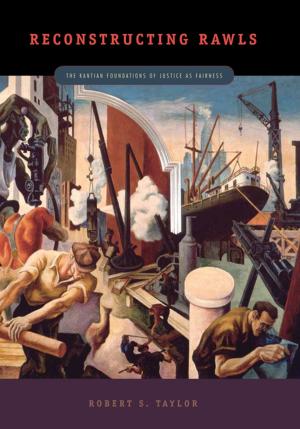In the Name of Reason
Technocrats and Politics in Chile
Nonfiction, History, Americas, Latin America, Social & Cultural Studies, Political Science, International, Foreign Legal Systems, Government, Democracy| Author: | Patricio Silva | ISBN: | 9780271074900 |
| Publisher: | Penn State University Press | Publication: | February 3, 2009 |
| Imprint: | Penn State University Press | Language: | English |
| Author: | Patricio Silva |
| ISBN: | 9780271074900 |
| Publisher: | Penn State University Press |
| Publication: | February 3, 2009 |
| Imprint: | Penn State University Press |
| Language: | English |
The major role played by a technocratic elite in Chilean politics was perhaps most controversial when the “Chicago Boys” ran the economic program of Augusto Pinochet’s military regime from 1973 to 1990. But technocrats did not suddenly come upon the scene when Pinochet engineered the coup against Salvador Allende’s government. They had long been important contributors to Chile’s approach to the challenges of economic development.
In this book, political scientist and historian Patricio Silva examines their part in the story of twentieth-century Chile. Even before industrialization had begun in Chile, the impact of positivism and the idea of “scientific government” gained favor with Chilean intellectuals in the late nineteenth century. The technocrats who emerged from this background became the main architects designing the industrial policies of the state through the Ibáñez government (1927–31), the state-led industrialization project of the late 1930s and 1940s, the Frei and Allende administrations, Pinochet’s dictatorship, and the return to democracy from the Aylwin administration to the present. Thus, contrary to the popular belief inspired by the dominance of the Chicago Boys, technocrats have not only been the tools of authoritarian leaders but have also been important players in sustaining democratic rule. As Silva shows, technocratic ideology in Chile has been quite compatible with the interests and demands of the large middle classes, who have always defended meritocratic values and educational achievements above the privileges provided by social backgrounds. And for most of the twentieth century, technocrats have provided a kind of buffer zone between contending political forces, thereby facilitating the functioning of Chilean democracy in the past and the present.
The major role played by a technocratic elite in Chilean politics was perhaps most controversial when the “Chicago Boys” ran the economic program of Augusto Pinochet’s military regime from 1973 to 1990. But technocrats did not suddenly come upon the scene when Pinochet engineered the coup against Salvador Allende’s government. They had long been important contributors to Chile’s approach to the challenges of economic development.
In this book, political scientist and historian Patricio Silva examines their part in the story of twentieth-century Chile. Even before industrialization had begun in Chile, the impact of positivism and the idea of “scientific government” gained favor with Chilean intellectuals in the late nineteenth century. The technocrats who emerged from this background became the main architects designing the industrial policies of the state through the Ibáñez government (1927–31), the state-led industrialization project of the late 1930s and 1940s, the Frei and Allende administrations, Pinochet’s dictatorship, and the return to democracy from the Aylwin administration to the present. Thus, contrary to the popular belief inspired by the dominance of the Chicago Boys, technocrats have not only been the tools of authoritarian leaders but have also been important players in sustaining democratic rule. As Silva shows, technocratic ideology in Chile has been quite compatible with the interests and demands of the large middle classes, who have always defended meritocratic values and educational achievements above the privileges provided by social backgrounds. And for most of the twentieth century, technocrats have provided a kind of buffer zone between contending political forces, thereby facilitating the functioning of Chilean democracy in the past and the present.















